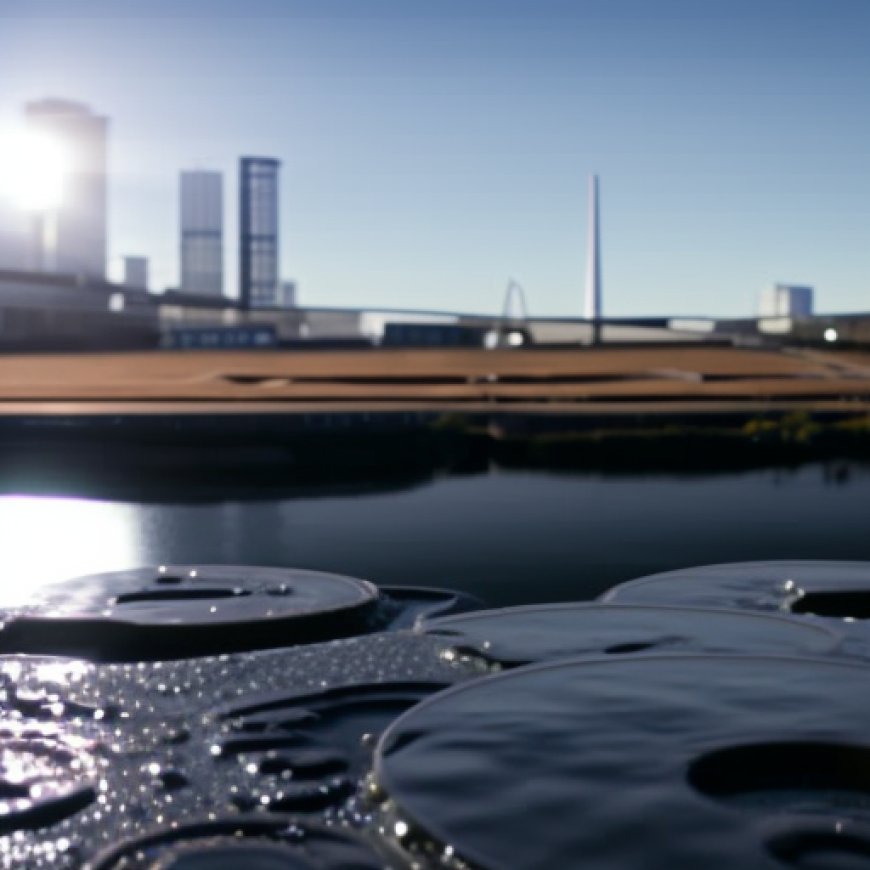Vancouver eyes turning sludge from wastewater treatment process into energy
Vancouver eyes turning sludge from wastewater treatment process ... The Columbian

Every day, millions of gallons of water carrying a valuable resource slosh beneath our feet in a complex network of pipes.
Wastewater flows from household tubs, sinks, and toilets — carrying sudsy soap, small toys such as doll heads, and feces — to a facility where it undergoes various treatments before returning to the Columbia River.
For Frank Dick, Vancouver’s wastewater engineering supervisor, this water is anything but a waste.
Facilities use physical, chemical, and biological processes to clean water before returning it to nature. This process yields a dense, gray sludge, which is eventually burned to fine ash and sent to a landfill. However, Dick believes that these solids have the potential to energize the community.
“I feel like as an industry, we’re on the cusp of the movement of a mindset change,” he said.
Wastewater solids hold nutrients that can be transformed into biogas, which can then be used for heating and electricity. This can be done by using large cylindrical containers called anaerobic digesters. The equipment effectively speeds up solids decomposition by removing oxygen and introducing microorganisms that enjoy eating them.

Exploring Resource Recovery for Sustainable Development
Did You Know?
- Vancouver’s wastewater collection system includes about 785 miles of sewer lines and 41 pump stations.
- Vancouver processes roughly 1 ton of wastewater solids per hour — equivalent to the weight of a Volkswagen Beetle.
Although Vancouver doesn’t currently have anaerobic digesters, Dick is confident that the technology could be introduced to the city’s system within the foreseeable future.
The city’s incinerator, an integral component in its current wastewater solids management system, is roughly 23 years old and has about another decade of life left. Considering the machinery’s inevitable demise, Vancouver is exploring means to tap into resource recovery — turning waste into power.
And there’s a lot of sludge that can be used.
Vancouver processes roughly 1 ton of wastewater solids per hour — equivalent to the weight of a Volkswagen Beetle, according to a September city council solids renewal workshop.
Officials’ exploration of resource recovery will help shape Vancouver’s upcoming wastewater solids renewal program, an effort that Dick says will further the city’s climate goals while tapping into emerging renewable energy markets.
For guidance, Vancouver is looking to its neighbors across the Columbia River in Oregon.
Gresham’s wastewater treatment plant — the first of its kind in the Pacific Northwest — generates the same amount of electricity as it consumes. The net-zero operation uses two engines fueled by biogas produced by the anaerobic digestion of wastewater solids, as well as oil and grease from local restaurants, according to Energy Trust of Oregon.
Portland’s Columbia Boulevard Wastewater Treatment Plant refines wastewater solids into methane gas, which it uses to partially power the site and sells to its neighbor, the Malarkey Roofing Company, according to the Portland Bureau of Environmental Sciences. Natural gas produced through wastewater resource recovery will eventually replace diesel fuel in commercial vehicles, an undertaking dubbed a “Poop to Power” project.
“Waste doesn’t have to be wasted,” said Diane Dulken, the agency’s public information officer. “It can be harnessed and harvested.”
Wastewater treatment isn’t the only industry pursuing resource recovery.
In Longview, a company is developing a facility that will host an anaerobic digester to convert torrents of wasted food into renewable energy. States with a robust agricultural sector can process manure to produce methane.
Incorporating this technology into Vancouver’s existing system would be costly, Dick admitted. But over time, resource recovery could lessen impacts to ratepayers, expand partnerships for sustainability projects, and offset energy use, he said.
Vancouver officials will study possible changes to the wastewater solids renewal program through 2025. Eventually, the city will decide whether it will continue incinerating wastewater solids or pursue a path of resource recovery.
“This is the ability for the community to understand not just wastewater’s role in a circular economy, but in things we do every day,” Dick said. “From what comes down the sewer or goes into the garbage, we can think smarter and reduce and reuse.”

Join us, as fellow seekers of change, on a transformative journey at https://sdgtalks.ai/welcome, where you can become a member and actively contribute to shaping a brighter future.







